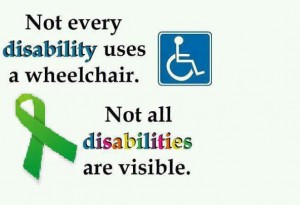 The recent passing of Robin Williams has me thinking about how much of what we believe we know about each other relies on surfaces. Many illnesses, both mental and physical, can torment people without the slightest outward appearance. So when we learn about their suffering, we’re shocked. “But he looked so good,” we think. And that’s the problem—looking good is not the same as being OK.
The recent passing of Robin Williams has me thinking about how much of what we believe we know about each other relies on surfaces. Many illnesses, both mental and physical, can torment people without the slightest outward appearance. So when we learn about their suffering, we’re shocked. “But he looked so good,” we think. And that’s the problem—looking good is not the same as being OK.
In this space, we talk a lot about the Knower-Judger. We’re all living out different K/J stories. We come from different geographies, religions, races, histories, families, and villages, and so we arrive at this moment in our lives with completely different libraries of behavior.
But some of the factors that shape people’s behavior go way beyond what is simply learned. They are chemical, physical, or psychological factors too profound to shift through self-reflection or a mind-over-matter approach. Often, the only solution people suffering from such a problem can think of is to try to hide it—to look normal. To look good.
Depression and mental illness like those experienced by Williams and other funnymen before him (John Belushi and John Candy, to name two) are among the demons that can plague people who have by many measures achieved great success. Williams talked of being the chubby kid who was picked on at school, then deciding to overcome that by wrestling and running and “looking good” as he grew. I suspect the scars of the earlier episodes still resided in the shadows of his success. And looking good is an ineffective tool for truly coping.
Similarly, children of abusers, alcoholics, and addicts carry a burden throughout their lives that you and I may never hear about or even suspect. They often hide their pain by putting on an act. For example, they might seem to be the life of the party outside of the house but be terrified to return home every night. The trauma from the abuse is a part of their K/J and can bubble to the surface unexpectedly at any moment. Sometimes these eruptions take the form of unusual, inexplicable, or abhorrent behavior. And upon witnessing that behavior, we may be inclined to react unsympathetically from our own K/J posture.
Psychological trauma and mental illness are not the only problems that aren’t visible to the eye. The term invisible disabilities refers to symptoms such as debilitating pain, fatigue, dizziness, cognitive dysfunctions, brain injuries, learning differences and mental health disorders, as well as hearing and vision impairments. These are not always obvious to the onlooker, but can sometimes or always limit activities, range from mild challenges to severe limitations, and vary from person to person.
Several years ago, I met the founder and president of the Invisible Disabilities Association, Wayne Connell. Wayne and his wife, Sherri, have an incredible story about Sherri’s introduction to the world of invisible disabilities. Sherri was an active athlete and dancer until she developed a litany of illnesses that would make most of us just give up.
Plagued by chronic illness through her late youth, she was diagnosed with primary progressive multiple sclerosis while working on her master’s degree. What the doctors didn’t know at the time was that she was also suffering from a latent case of Lyme disease from a tick bite she had suffered many years earlier. The steroids for her MS were aggravating the Lyme disease. There was no way out.
Watch a two-minute video on invisible disabilities.
So how can we help those who suffer from diseases that allow them to “look good” while they suffer beneath? What can we do to ease their pain?
The bottom line is that you can never presume to know everything that goes on beneath the surface of other people’s lives—not celebrities, not acquaintances, not co-workers, not even friends and family. I believe we could all benefit by learning to listen with our ears, instead of judging with our eyes. Always be open to the Learner/Researcher conversation.


